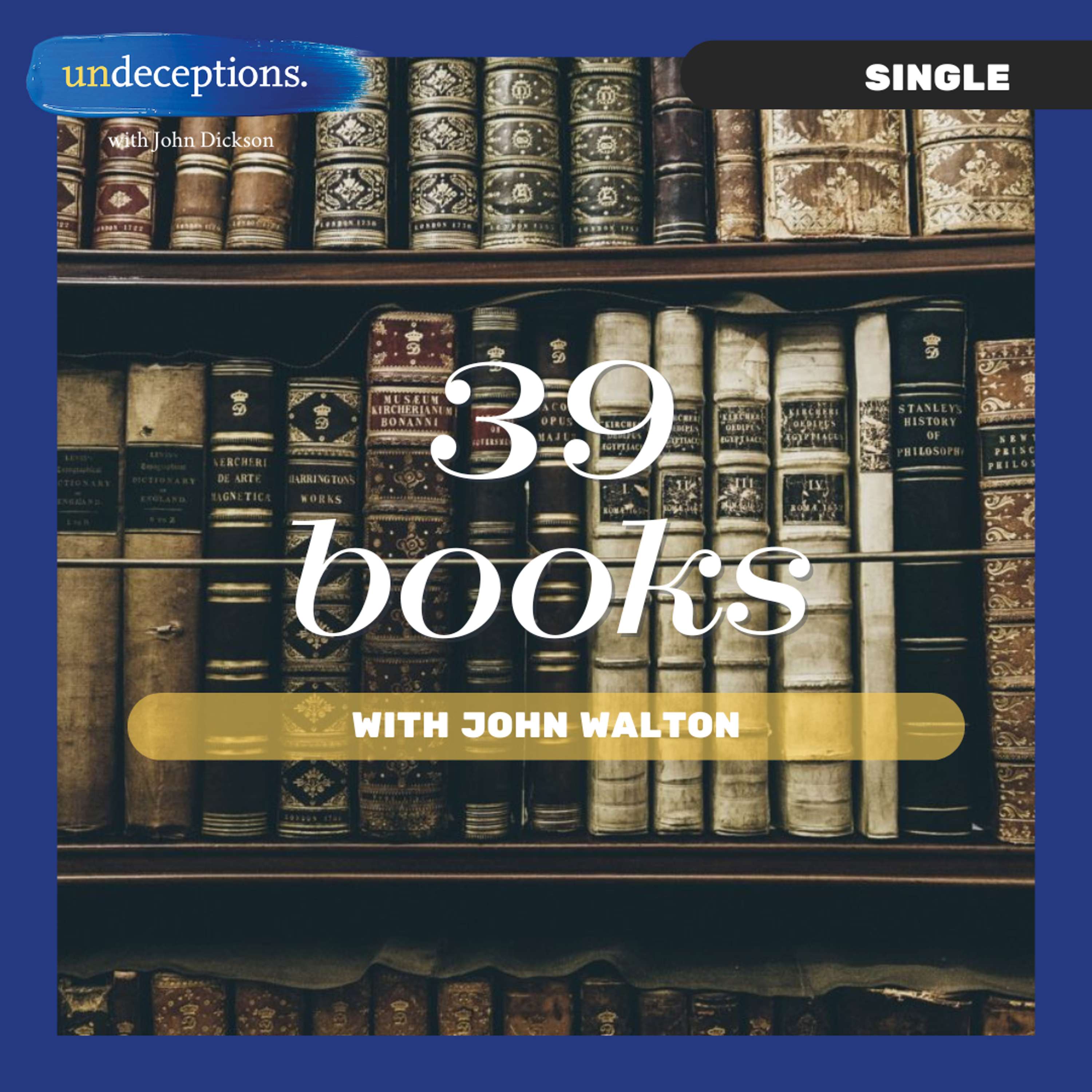
SINGLE: 39 Books

Undeceptions with John Dickson
Deep Dive
Why is it important to approach the creation stories in the Old Testament with an ancient mindset?
The creation narratives in Genesis focus on order rather than materiality, reflecting ancient Near Eastern thought. Reading them through a modern scientific lens misses their intended meaning, which emphasizes God's role in establishing divine order and sanctity.
What is the central theme of the patriarchal narratives in the Old Testament?
The patriarchal narratives revolve around the concept of covenant, which is the foundation of order. These stories are not just about the ancestors but about how God establishes a relationship with humanity through the covenant, leading to His presence and order in the world.
How does the Exodus narrative fit into the theme of order in the Old Testament?
The Exodus is a pivotal event where God brings order to His people by freeing them from Egyptian slavery. It is part of God's long-term plan to establish order through the covenant, showing His faithfulness and working out His purposes for Israel.
What is the purpose of the Torah in the Old Testament?
The Torah, often translated as 'law,' serves as a source of wisdom for bringing order to society. It is not about modern legislation but about customary law and wisdom that helps Israel maintain order in their covenant relationship with God.
How should the conquest narratives in the Old Testament be understood?
The conquest narratives are about clearing the land for God's presence, not about genocide or holy war. The term 'utterly destroy' refers to eliminating people from human use, not annihilation, as part of creating a space for God's order and presence in the land.
What is the recurring theme in the period of the Judges in the Old Testament?
The recurring theme in the Judges period is disorder, as the people fail to follow the covenant and do what is right in their own eyes. This reflects their unfaithfulness to God and the need for a return to covenantal order.
What role do the prophets play in the Old Testament?
The prophets are champions of the covenant, speaking on behalf of God to call the people back to faithfulness. They deliver messages of indictment, judgment, instruction, and hope, all centered on the covenant and God's plans for His people.
What is the significance of the exile in the Old Testament?
The exile is a punitive action by God as judgment for Israel's unfaithfulness to the covenant. It serves as a purification process, removing the people from the land to restore order and prepare for future restoration.
How should the wisdom literature in the Old Testament be read?
The wisdom literature, including books like Proverbs, Job, and Ecclesiastes, provides pathways to order. It teaches how to live wisely, think about God, and understand His plans, emphasizing that true wisdom and order come from a relationship with God.
What is the purpose of the Psalms in the Old Testament?
The Psalms are a collection of prayers and songs that reflect the relationship between humans and God. They show various responses to God, from praise to questioning, and emphasize the importance of communion and relationship over communication or results.
How does the Old Testament help us understand the New Testament?
The Old Testament provides God's story, which is essential for understanding Him. It reveals how God works in the world and establishes His covenant, setting the stage for the New Testament and Jesus' role in fulfilling God's plans.
- The creation narrative focuses on order, not materiality.
- Genesis 1's seven days relate to temple dedications, not the universe's chronology.
- Creation is presented as a divinely ordered space, a temple.
Shownotes Transcript
The Old Testament is sacred not just to the Christian but also to the Jewish religion. Its 39 books cover thousands of years with an array of literary genres including poetry, history, creation myth, apocalyptic, and song.
It can be confusing and overwhelming - but luckily, John happens to work in the same building as a leading expert on it all who gives us a quick rundown in this special Single.